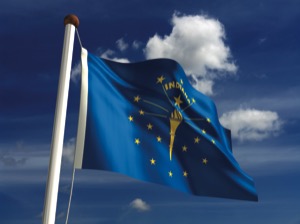
This week, the nation – the western world – has reacted with disbelief and distain over the Religious Freedom Restoration Act (RFRA) that Indiana Gov. Mike Pence signed into law.
The argument has been that this law mirrors RFRA laws of many other states across the U.S., as well as the RFRA that the U.S passed in 1993. President Obama voted for Illinois’ RFRA, President Clinton voted for the federal RFRA – so why is Indiana’s RFRA any different?
Section 9 of Indiana’s law that will take effect July 1 is what separates this bill from other bills. The federal law and all of the other state laws require the government to be a party burdening of religion; Indiana’s Section 9 allows private businesses and corporations to claim their “exercise of religion has been substantially burdened, or is likely to be substantially burdened,” and can use the law as a legal sword between private parties – individuals and corporations – whether or not the government has an interest. This RFRA is more broadly written than any other RFRA in the nation.
The legislators and governor of Indiana were caught off guard by the massive backlash by corporations and government agencies. Angie’s List cancelled a $40 million expansion, conventions have been cancelled, the NCAA is reconsidering its presence in the state, states and municipalities are banning official travel to the state and many more businesses and government agencies are considering actions that could have significant economic impact.
What caught the attention of the supermajority of Republicans and the governor in Indiana was the real economic cost to the state, not whether an expansive RFRA was morally right.
It doesn’t help that Gov. Pence is claiming that the intent of the law isn’t to discriminate against LGBT community members when GLAAD posted a picture of antigay activists standing behind Gov. Pence as he signed the bill into law. And, these anti-gay activists have been telling their followers that this RFRA would allow florists, backers and wedding photographers to discriminate against gays and lesbians. And, the Daily KOS went further and identified even more activists who were making similar claims.
“Freedom Indiana has identified the right way out of the mess that Gov. Pence has created,” Tobias Barrington Wolff, University of Pennsylvania Law School, Professor of Law has stated. “If the governor is being truthful when he says that he opposes all forms of discrimination, then this proposal is the answer: extend the same protection against unfair treatment to all Hoosiers, and make clear that religion should never be used as a license to discriminate. If Gov. Pence refuses, then the business community will have its answer.”
The Indianapolis Star posted an editorial on the front page of their March 31issue echoing that thought. And, they proposed a solution. “Indianapolis, for example, has had those legal protections in place for nearly a decade,” they editorialized. “Indy’s law applies to businesses with more than six employees, and exempts religious organizations and nonprofit groups. The city’s human rights ordinance provides strong legal protection – and peace of mind – for LGBT citizens; yet, it has not placed an undue burden on businesses.”
So, here’s the rub. What do the Indianapolis Senate Democrats propose? According to BuzzFeed, “Democrats are also pushing a companion [to repealing the RFRA] measure that would expand the state’s civil rights law to include gay, lesbian and bisexual people as a protected class. Sen. Lanane said the measure does not cover gender identity.”
Good one Indiana Democrats, you’ve joined the Republicans in leaving some Indianans behind.











